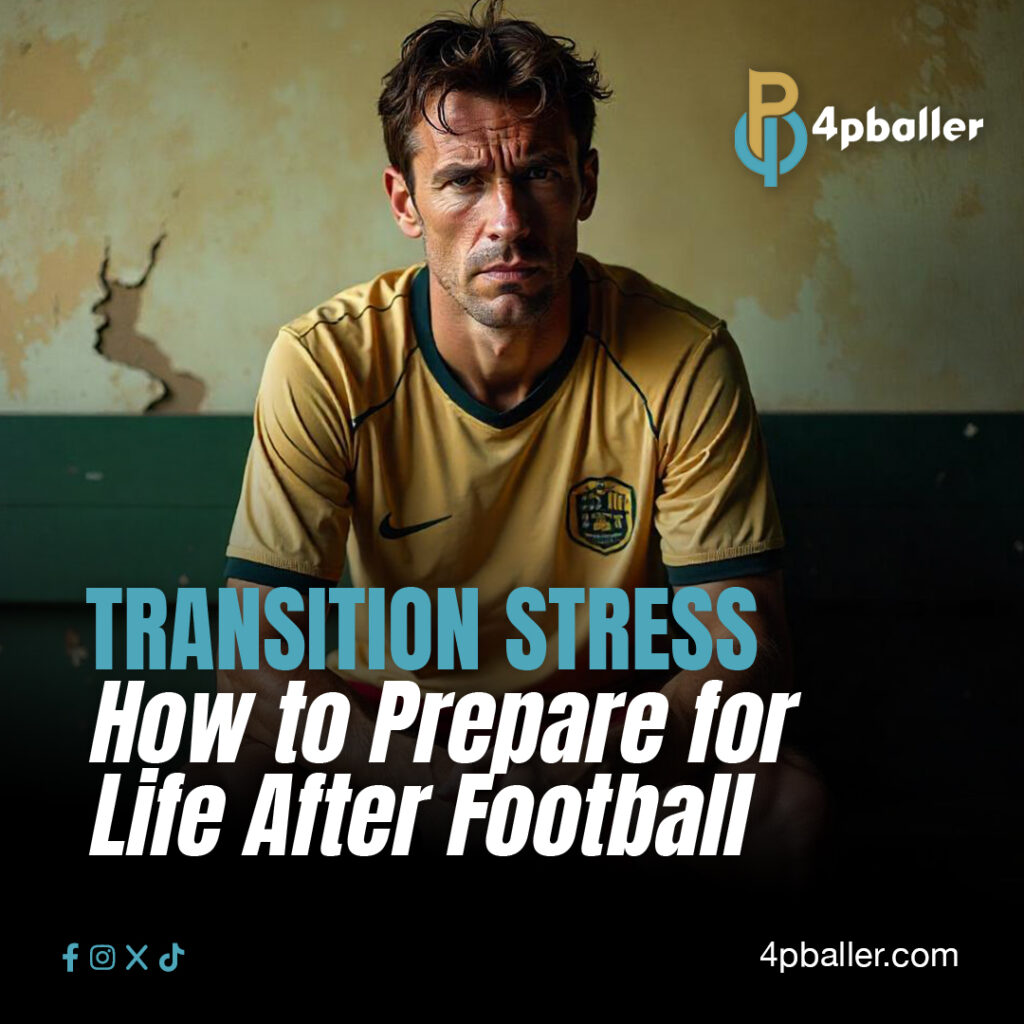Imagine the deafening silence that replaces the roar of the crowd, the emptiness that fills the void left by the adrenaline rush of scoring a goal, and the loneliness that creeps in as the camaraderie of the locker room fades away. For many professional footballers, the transition from active play to retirement is more than just a career change; it’s a seismic shift in identity and lifestyle. This period is often marked by immense stress, emotional turmoil, and the daunting task of finding a new purpose in life.
The Emotional Rollercoaster of Retirement
Retirement from professional football is a complex journey that goes beyond hanging up the boots. It’s a time of significant emotional upheaval. Players who have dedicated their lives to the sport often find themselves grappling with a sense of loss and uncertainty. The structured routine of training, matches, and team dynamics is suddenly replaced by a void that can be difficult to fill. The stress of this transition can be overwhelming, leaving many players feeling adrift and uncertain about their future.
Mental Health Challenges
One of the most significant issues faced by retiring footballers is the impact on their mental health. The pressure to perform, the physical toll of the sport, and the sudden lack of purpose can lead to anxiety and depression. Studies have shown that up to 26% of active players demonstrate evidence of anxiety or depression, and this number can increase during the transition to retirement.
Common Mental Health Symptoms
- Anxiety: The uncertainty of what lies ahead can be a major source of anxiety. Players may worry about their future, financial stability, and how to fill the void left by the sport.
- Depression: The loss of identity and purpose can lead to feelings of depression. Retiring players may struggle with finding meaning and fulfillment outside of football.
- Identity Crisis: For many athletes, their identity is closely tied to their sport. Retirement can lead to an identity crisis, as they grapple with who they are outside of being a footballer.
Physical Health and Chronic Pain
The physical demands of professional football can take a toll on the body, leading to chronic pain and long-term health issues. Many retired players experience ongoing discomfort from injuries sustained during their careers. Conditions like osteoarthritis in the lower limbs are common among retired footballers, adding to the challenges of retirement.
Coping Strategies and Support Systems
Navigating the challenges of retirement requires a multi-faceted approach. Here are some strategies that can help:
- Build a Support Network: Having a strong support system of family, friends, and former teammates can provide emotional and practical support during this transition.
- Seek Professional Help: Consulting with mental health professionals can provide the tools and strategies needed to manage anxiety and depression.
- Find New Purpose: Exploring new interests and hobbies can help fill the void left by football. Many retired players find fulfillment in coaching, mentoring, or other roles within the sport.
- Maintain Physical Activity: Staying active can help manage chronic pain and maintain overall health. Engaging in low-impact exercises and physical therapy can be beneficial.
- Plan for the Future: Financial planning and exploring new career opportunities can provide a sense of security and purpose.
Real-Life Examples
Many former footballers have shared their experiences with transition stress. For example, some players have spoken openly about the mental health struggles they faced after retiring, highlighting the importance of support and preparation for this phase of life.
Conclusion
The transition from active play to retirement is a challenging journey for many professional footballers. Addressing the mental and physical health challenges associated with this transition requires a comprehensive approach that includes support, planning, and professional help. Acknowledging and addressing these issues, retired players can navigate this period more smoothly and find fulfillment in their post-football lives.
For those currently navigating this transition or supporting someone who is, remember that it’s a journey that requires patience, understanding, and a willingness to seek help when needed. The roar of the crowd may fade, but the spirit of the athlete endures, ready to tackle new challenges and find new purposes.

